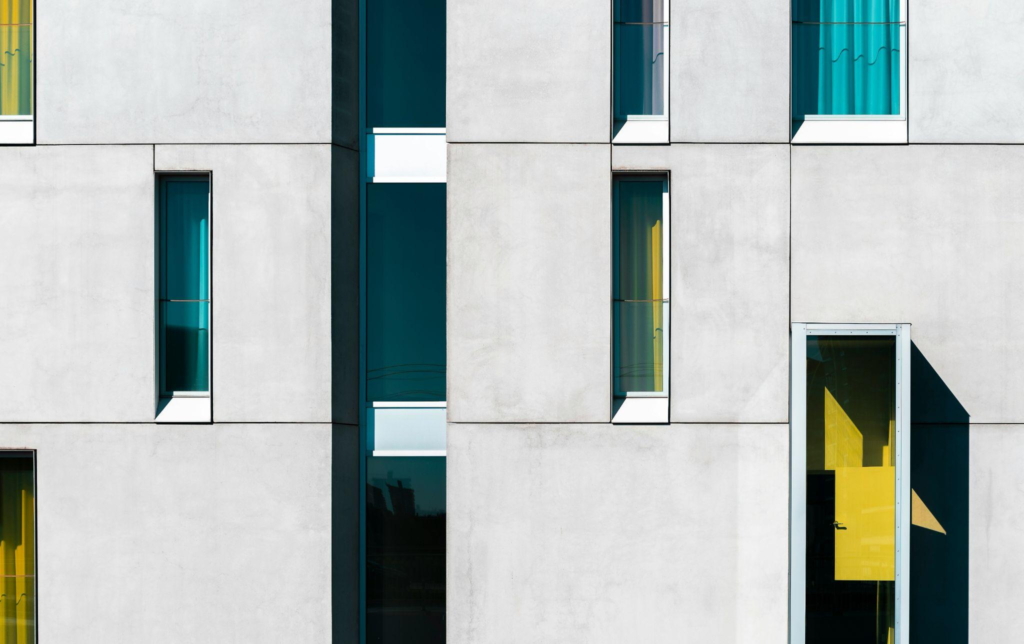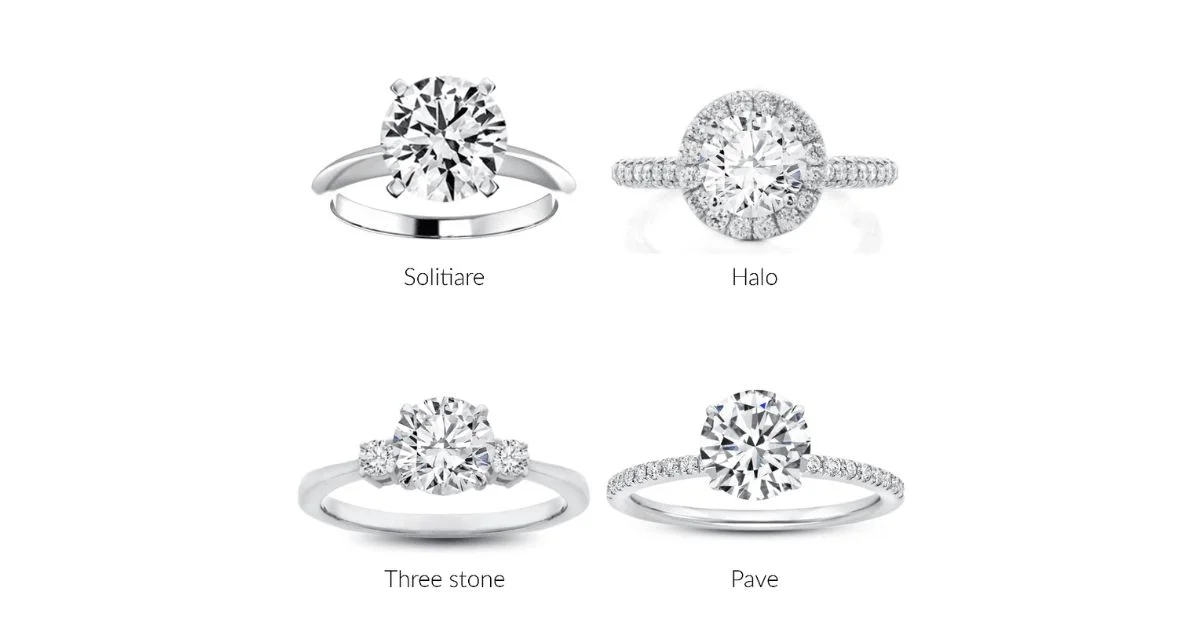FASHION
The Benefits of Vinyl Windows: Affordable, Durable, and Stylish

When it comes to upgrading your home’s windows, vinyl windows are a choice you can’t overlook. They’ve become a popular option for homeowners thanks to their durability, affordability, and energy efficiency. To fully understand the benefits of vinyl windows, it’s important to consider their standout features, such as low maintenance, long-lasting performance, and energy-saving properties.
You’ll love how vinyl windows require minimal maintenance while still delivering long-lasting performance. Unlike traditional materials, they resist warping, cracking, and fading, even in extreme weather conditions. Plus, their energy-efficient design helps keep your home comfortable year-round, potentially lowering your utility bills.
With their wide range of styles and customizable options, vinyl windows can enhance your home’s curb appeal without breaking the bank. They’re a smart investment that provides both immediate and long-term benefits, making them a favorite for homeowners like you.
What Are Vinyl Windows?
Vinyl windows are frames made from polyvinyl chloride (PVC), a durable plastic material. The PVC composition includes additives for UV resistance, flexibility, and color retention. These windows are designed to withstand various weather conditions without warping, cracking, or fading.
The manufacturing process involves extrusion, where PVC is shaped into window profiles. This method creates frames that are airtight and energy-efficient. The multi-chambered structure within the frames enhances insulation, reducing heat transfer and noise infiltration.
Vinyl windows come in various styles, including single-hung, double-hung, casement, and sliding options. Each type fits different architectural requirements and functional needs. Customization options such as frame colors, finishes, and grid patterns ensure they complement your home’s design.
Their low-maintenance nature adds to their appeal. Unlike wood or metal, vinyl doesn’t absorb moisture or corrode, reducing upkeep. A simple cleaning routine keeps frames looking new, and the material’s durability minimizes the risk of damage.
Energy efficiency is a defining feature of vinyl windows. Most units include multi-pane glass with inert gas fills and low-emissivity (Low-E) coatings to maintain indoor comfort. These properties can lower heating and cooling costs and reduce environmental impact.
Vinyl windows are also affordable compared to wood or fiberglass alternatives. Installation costs are often lower due to the material’s lightweight and straightforward assembly. This combination of cost-effectiveness and performance makes them a popular choice for modern homes.
Durability And Low Maintenance
Vinyl windows stand out for their resilience and ease of upkeep. Their construction ensures they maintain quality and functionality over time with minimal effort. For insights into how vinyl windows contribute to improved energy efficiency and durability, check out This Old House’s guide to energy-efficient windows.
Resistance To Weather Conditions
Vinyl windows effectively withstand harsh weather conditions. Their PVC construction resists warping, cracking, and peeling, even under extreme temperatures or prolonged sun exposure. UV-resistant additives in the material protect against fading, making them ideal for sunny climates. Unlike wood, vinyl doesn’t absorb moisture, so you won’t face issues like swelling, rotting, or mold growth, even in humid or rainy areas. For example, in areas with heavy snowfall or storms, vinyl windows perform consistently without deterioration.
Long Lifespan
Vinyl windows offer a lifespan of 20-40 years, depending on environmental exposure and upkeep. Their durable surface resists wear and tear from regular use or varying weather conditions. The multi-chambered design enhances structural integrity, ensuring long-term stability. Vinyl’s resistance to rust and corrosion, unlike aluminum, further extends its usability. Regular cleaning and proper sealing keep these windows functioning efficiently and looking new for decades, reducing the need for replacements over time.
Energy Efficiency Benefits
Vinyl windows optimize energy performance, making them a key feature for reducing energy waste in homes. Their innovative design and materials enhance insulation and minimize energy loss, providing significant long-term savings.
Improved Insulation
Vinyl windows feature multi-chambered frames that create air pockets, enhancing thermal insulation. This structure prevents heat transfer, maintaining consistent indoor temperatures regardless of weather conditions. Combined with advanced sealing techniques, they reduce drafts and air leaks that lower efficiency.
Most vinyl windows include double or triple-pane glass, which improves insulation further. These panes often contain inert gases like argon or krypton between them, minimizing heat conduction. Low-emissivity (Low-E) coatings on the glass also reflect heat back into your home during winter and block UV rays in summer. These features ensure your home retains warmth in colder months and stays cooler during heatwaves.
Reduced Energy Costs
By improving insulation, vinyl windows help lower heating and cooling demands. With less energy needed to maintain indoor comfort, your utility bills decrease significantly over time.
Energy-efficient additions like Low-E glass and gas fills contribute to cutting energy costs. Low-E coatings block solar heat from entering during summer while retaining it in winter. Inert gas fills minimize heat exchange, ensuring lower temperature fluctuations in your home. Energy Star-certified vinyl windows may reduce household energy bills by up to 12%, depending on your climate and window specifications. These savings enhance the cost-effectiveness of vinyl windows as an energy-efficient solution.
Cost-Effectiveness Of Vinyl Windows
Vinyl windows combine an affordable upfront price with ongoing savings, making them an economically wise option for homeowners. Their competitive pricing and energy-efficient features contribute to reduced costs over time.
Affordable Initial Investment
Vinyl windows cost less than wood or fiberglass alternatives, with prices typically ranging from $300 to $800 per window, including installation. Their lightweight design leads to lower labor fees, as installation is quicker and easier compared to heavier materials. The manufacturing process of PVC is cost-efficient, further reducing the product’s market price without compromising quality. Vinyl’s availability in various sizes and styles ensures cost-effective options for any budget or project, whether replacing existing windows or outfitting a new construction. This affordability allows homeowners to prioritize upgrades without straining finances.
Long-Term Savings
Vinyl windows deliver significant savings through energy efficiency and minimal maintenance needs. Energy-efficient designs, such as multi-pane glass with Low-E coatings and inert gas fills, can reduce heating and cooling costs by up to 12% annually when Energy Star-certified options are installed. Their durable construction resists warping, fading, and moisture damage, eliminating recurring repair or repainting expenses over their 20-40 year lifespan. With only simple cleaning required, you’ll avoid additional maintenance costs. These savings compound over time, making vinyl windows a financially sound, long-term investment.
Aesthetic Versatility

Image from Unsplash
Vinyl windows offer outstanding flexibility in design, allowing you to create a look that perfectly matches your home’s architecture and personal style preferences. Their adaptable characteristics make them a top choice for enhancing both interior and exterior aesthetics.
Customization Options
Vinyl windows provide a broad range of customization possibilities to suit your taste. You can choose from various frame colors, including neutral tones like white and beige or bold options like gray and black. Finishes, such as matte or woodgrain textures, allow for added personalization.
Grid patterns, including colonial, prairie, or custom designs, can further complement your home’s style. For example, colonial grids can enhance traditional styles, while no grids can create a modern feel. Additionally, you can select from diverse hardware finishes, enabling a cohesive look throughout your home. Custom sizes ensure a perfect fit for any window opening, enhancing the overall appearance.
Enhancing Curb Appeal
Vinyl windows significantly improve your home’s curb appeal by combining style with functionality. Their sleek frames and clean lines suit a variety of architectural designs, from classic to contemporary. The uniformity of vinyl allows for a polished and consistent look across your property’s exterior.
With UV-resistant finishes, vinyl windowse maintain their color and shine for years, resisting fading even in sunny climates. Replacing outdated windows with modern vinyl styles, like casement or sliding designs, elevates the exterior’s aesthetic appeal. Matching the window style and color to your home’s overall look ensures a cohesive design that enhances value and visual interest.
Environmental Considerations
Vinyl windows contribute to eco-friendly practices through energy efficiency and sustainable manufacturing processes. Their superior insulation reduces energy consumption, lowering your home’s heating and cooling demands. This reduction directly minimizes greenhouse gas emissions associated with energy production.
Manufacturers often recycle PVC in the production of vinyl windows, decreasing waste and conserving resources. The durability of vinyl extends its lifespan, reducing the frequency of window replacements and lessening environmental impact. Unlike wood windows, vinyl doesn’t require harvesting from forests, aiding in the preservation of natural ecosystems.
Energy Star-certified vinyl windowes enhance your home’s energy efficiency. With features like insulated frames, multi-pane glass, and Low-E coatings, these windows help conserve energy by maintaining consistent indoor temperatures. Such improvements align with energy-saving goals and reduce your overall carbon footprint.
Vinyl windowes are free from frequent chemical maintenance needs, unlike alternatives that may require paints or sealants. This feature helps limit the release of volatile organic compounds (VOCs) into the atmosphere, ensuring a healthier environment inside and outside your home.
The lightweight design of vinyl windowse simplifies transportation and installation, reducing fuel consumption during delivery. This benefit adds to the sustainability profile by lowering the environmental costs associated with logistics. These eco-conscious attributes make vinyl windows a responsible choice for environmentally-aware homeowners.
BEAUTY
Peel Pads – An Innovative Skincare Solution

Peel pads are one of the most efficient skin care products today. They are most commonly recommended by doctors and skincare professionals. They gently cleanse and renew skin, providing a smoother, more glowing complexion.
This skincare product is a miracle that delivers great results. Peel pads are a must-have to resurface and retexturize your skin tone. INSTYTUTUM offers high-quality facial peel pads with ingredients whose efficacy is clinically proven. There are a vast number of benefits to this potent, non-irritating acid cocktail:
- reduced wrinkles
- moisturized and hydrated skin
- less visible spots and hyperpigmentation
- boosted collagen production
- stimulates the production of collagen
INSTYTUTUM’S Peeling Flawless Pads are popular among celebrities, and dermatologists recommend adding them to your skincare routine.
What are the benefits of peeling flawless pads?
INSTYTUTUM’S powerful and easy-to-use pre-soaked pads are produced with glycolic, lactic, citric, hyaluronic, and salicylic acids that visibly reduce pore size, fine lines, and wrinkles. This skincare product also helps to improve skin tone, texture, and luminosity.
Flawless pads contain Purslane extract that functions as a strong soother, itch reliever, and antioxidant. All these ingredients influence collagen production and cell turnover, remove hyperpigmentation, and boost the moisturization effect.
Apply the pad to clean, dry skin on the face and neck. Experts recommend using it 3 times a week if you are new to this type of skincare and then increasing it to twice daily to achieve smooth, firm, and renewed skin. Don’t forget to apply sunscreen after using the peeling pads if you plan to go outside.
What can Peeling Flawless Pads be combined with?
Experts recommend combining the product with Brightening C-Illuminating 3D Moisturizer for an amazing effect. It provides an immediate radiant glow and supple, healthy, and intensely hydrated skin. INSTYTUTUM’S moisturizer includes the following ingredients:
- vitamin C brightens, reduces hyperpigmentation, stimulates collagen, and increases elasticity
- multi-molecular HA complex provides multi-depth hydration
- high-molecular-weight HA rapidly penetrates and creates a protective film on the skin surface, reduces water loss from the inside, provides 24-hour moisturization, repairs and restores from the inside, and provides anti-pollution/anti-UV benefits
- tri-peptide-1 promotes skin renewal and makes wrinkles less visible
- probiotics stabilize and create a healthy skin barrier
- pomegranate extract generates anti-aging and moisturizing effects
Other ingredients such as shea butter, almond and jojoba oil, allantoin, vitamin E, and B5, help to keep your skin smooth, calm, and soft and provide anti-inflammatory, repairing, and moisturizing effects.
INSTYTUTUM experts recommend applying the skincare product to a properly cleansed face to achieve an instantly radiant complexion or as a makeup base for extra glow.
Conclusion
INSTYTUTUM Flawless Peeling Pads are full of natural and powerful ingredients. The main components are acids that improve your skin complexion at once.
Natalia Derkach mentioned that the goal of the INSTYTUTUM brand is to show everyone how to get the best skin and achieve real results in their skincare routine. That is why the brand has a full line of professional skincare products that are used by celebrities and recommended by top dermatologists worldwide.
Visit the INSTYTUTUM official website for more information about a high-efficacy skincare routine to make your skin healthy and radiant.
BEAUTY
The Hydroluxx Facial: A Luxurious Journey to Rejuvenated Skin

In the realm of skincare, where innovation reigns supreme, the Hydroluxx facial has emerged as a luxurious and effective treatment for achieving radiant and rejuvenated skin. This multi-step procedure combines the benefits of hydradermabrasion, exfoliation, extraction, and infusion to cleanse, hydrate, and nourish the complexion. Let’s delve into what the Hydroluxx facial entails, how it’s performed, the different types available, and the remarkable effects it can have on the skin.
Understanding the Hydroluxx Facial
The Hydroluxx facial is a comprehensive skincare treatment that targets various skin concerns, including dullness, uneven texture, fine lines, and congestion. It is designed to deeply cleanse the skin, remove impurities, and infuse potent serums tailored to the individual’s skincare needs. This advanced facial treatment combines multiple techniques to rejuvenate and revitalize the complexion, leaving it looking brighter, smoother, and more youthful.
How is it Carried Out?
The Hydroluxx facial typically begins with a thorough cleansing of the skin to remove any makeup, dirt, and impurities. The next step involves hydradermabrasion, a gentle exfoliation process that uses a specialized device to deliver a controlled stream of water and exfoliating serums to the skin’s surface. This helps to remove dead skin cells, unclog pores, and improve skin texture.
Following hydradermabrasion, targeted serums tailored to the individual’s skincare needs are infused into the skin using the same device. These serums may contain ingredients such as hyaluronic acid, vitamins, antioxidants, and peptides, which penetrate deep into the skin to hydrate, plump, and nourish the complexion.
In addition to exfoliation and infusion, the Hydroluxx facial may also include gentle suction to extract impurities from the pores, leaving the skin clean and clear. The treatment concludes with the application of a soothing mask, followed by moisturizer and sunscreen to protect the skin.
Types of Hydroluxx Facial Treatments
While the basic steps of the Hydroluxx facial remain consistent, variations may exist depending on the skincare clinic and the specific needs of the individual. Some clinics may offer add-on treatments such as LED light therapy, oxygen infusion, or lymphatic drainage massage to further enhance the results of the Hydroluxx facials.
The Effects of Hydroluxx Facial on the Skin
The Hydroluxx facial offers a multitude of benefits for the skin:
- Deep Cleansing: The hydradermabrasion process effectively removes impurities, excess oil, and dead skin cells, leaving the skin clean and refreshed.
- Hydration: Infusion of customized serums delivers potent hydrating ingredients deep into the skin, helping to replenish moisture levels and restore a healthy glow.
- Exfoliation: Gentle exfoliation helps to improve skin texture, tone, and clarity by promoting cell turnover and removing surface debris.
- Nourishment: Targeted serums rich in vitamins, antioxidants, and peptides nourish the skin, promoting collagen production, and addressing specific skincare concerns such as fine lines and wrinkles.
- Improved Radiance: By cleansing, hydrating, and nourishing the skin, the Hydroluxx facials helps to restore radiance and vitality to the complexion, leaving it looking brighter, smoother, and more youthful.
In conclusion, the Hydroluxx facial offers a luxurious and effective solution for achieving radiant and rejuvenated skin. Whether you’re looking to address dullness, dehydration, or signs of aging, this advanced skincare treatment can help you achieve your skincare goals. With its combination of hydradermabrasion, infusion therapy, and targeted serums, the Hydroluxx facial elevates the standard facial experience, providing a pampering and results-driven approach to skincare.
FASHION
Rare Carat: Top Engagement Rings

Everything counts within this insane society of purchasing engagement rings, and it appears that each weighty option is the only one that says “I love you.” But do not be afraid! The good news is there’s a lighthouse during this storm called Rare Carat which knows what’s going on and can help you find your perfect ring with knowledge and dedication. Rare Carat is America’s #1 independent resource for diamond engagement rings. They’re here to help walk you through the process so that you can make an educated decision on a forever stone by providing transparency and more information than any jeweler would give.
The Not So Common Common Sense Experience
Rare Carat isn’t just another diamond retailer online; it’s a revolution for shopping engagement rings online. They’ve managed to redefine art around this idea through their incredible attention, skillful workmanship, detailed passion etc … .yes even while having easy – sounding goals such as making steps transparent enough along the customer’s purchase path so that they exceed his expectations about the best ever online purchasing experience possible .
Rare Carat doesn’t regard diamonds as just minerals but rather works of beautiful arts themselves — we have over 1 million pieces sourced from reputable suppliers among which we feature both natural ones and lab grown too! Whether it’s classic solitaires or fancy halo settings – any style can be found here at affordable prices thanks to such great selection variety provided by companies like ours!
Finding Rare Treasures: Scoring Great Deals
Perhaps you are wondering why Rare Carat should be your first stop in search of the perfect jewel. Here is the answer. It has an unmatched ability to find great bargains without compromising on quality. And this can only happen through breakthrough technology and vast expertise that ensure such offers are made available. Besides, the company provides affordable luxury for everyone whether they want a stunning yellow gold solitaire engagement ring or beautiful platinum setting.
If you love the yellow gold jewelry’s warmth and glamour, then our solitaires crafted from top-quality materials might interest you — not just because of its undying charm but also due to lifetime sustainability! These designs are meant for today’s wear and forever keeping as we try to achieve perfection in eternal appearance as well as finish which guarantees endless love.
But what if I go for something sleeker? Lucky me with these petite masterpieces here called Solitaire in Platinum! They still represent luxuriousness in life while costing less than what most people can buy them at. Many rings emphasize how much light their diamonds reflect back by enhancing centers of those stones; however not this one – it should stand forever binding two souls together!
Quality That Is Second To None With Unbeatable Service
We know we say it lot but every diamond really does get looked over with fine tooth comb by GIA certified gemologists here at Rare Carat; all in effort ensuring that quality remains top notch throughout entire process — from when stone first enters our hands until last customer walks back out those doors having found something truly special about themselves or someone else along way… So please don’t hesitate to make an appointment today if interested because let me tell ya folks there ain’t many places where one can find such beautifully cut stones sold alongside knowledgeable staff ready to answer any question might have (no matter how silly).
But Rare Carat’s dedication to excellence does not stop here. They have an outstanding track record of customer satisfaction, which is reflected in their exceptional reviews on Google Business Profile and Trustpilot where they hold an average rating of 4.9/5. The company does not only provide personalized recommendations but also ensures that they respond promptly whenever you need help; this shows how far rare carat can go beyond your expectation so that every shopping experience becomes more than unique.
Start Your Trip with Rare Carat
It is best to think of Rare Carat as a compass that guides you through the adventure of finding the right engagement ring. No other online diamond retailer offers such a wide range of options, competitive prices or dedication to excellence in every aspect.
So why settle for ordinary? Visit rarecarat.com now and let it take you on a journey that’s just as extraordinary as your love story. Remember, when matters of the heart are concerned, only a few things will suffice.
To sum up, at Rare Carat one doesn’t simply find an engagement ring; they enter into beautiful eternal love and elegance personified; it becomes a gateway for these things. Saying this much we can say without any doubt that if you decide to come along while looking for that perfect band then be prepared for many exciting moments because here at Rare Carats we aim at ensuring customers have nothing less than mind blowing experiences while shopping for engagement rings made from only highest quality precious stones like diamonds among others too many mention individually so forgive me if I left any out may God bless America.

 BUSINESS1 year ago
BUSINESS1 year agoExploring the Benefits of Commercial Printing

 HOME IMPROVEMENT12 months ago
HOME IMPROVEMENT12 months agoThe Do’s and Don’ts of Renting Rubbish Bins for Your Next Renovation

 BUSINESS12 months ago
BUSINESS12 months agoBrand Visibility with Imprint Now and Custom Poly Mailers

 HEALTH8 months ago
HEALTH8 months agoThe Surprising Benefits of Weight Loss Peptides You Need to Know

 TECHNOLOGY10 months ago
TECHNOLOGY10 months agoDizipal 608: The Tech Revolution Redefined

 HEALTH7 months ago
HEALTH7 months agoYour Guide to Shedding Pounds in the Digital Age

 HOME IMPROVEMENT8 months ago
HOME IMPROVEMENT8 months agoGet Your Grout to Gleam With These Easy-To-Follow Tips

 HEALTH11 months ago
HEALTH11 months agoHappy Hippo Kratom Reviews: Read Before You Buy!












